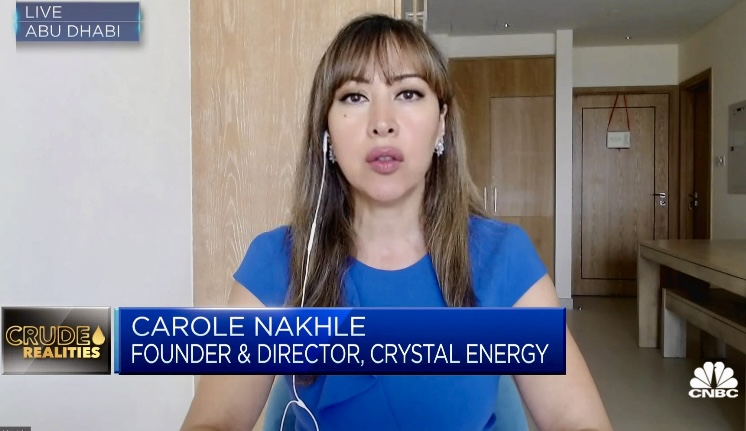In this interview given to CNBC, Dr. Carole Nakhle, CEO of Crystol Energy, discusses why tensions in the Red Sea have had a limited effect on oil prices and the challenges ahead for OPEC+.
Main points:
– Oil prices haven’t spiked and sustained higher levels despite the rising geopolitical tensions, including the Houthis’ attacks in the Red Sea, the ongoing war in Gaza, the war in Ukraine and the rising tensions elsewhere in the Middle East.
– The key drivers of such a phenomenon are the lack of supply disruption to commodities and adequate spare capacity held by OPEC+, as a result of its cuts, both of which limits the geopolitical risk premium.
– On top of these, market fundamentals indicate weakness in oil demand growth compared to oil supply growth.
– While positive news that central banks in Europe and the US could ease interest rates (and in tun boost economic activity), the major contributor to oil demand growth for 2023 and 2024 has been China, which has been battling with structural problems in its economy.
– All those factors (and more) should be considered when assessing the impact of a political development on oil markets. Focusing on one of them only results in a simplistic conclusion.
– Angola leaving OPEC+ by the end of 2023 is not an encouraging indicator for the unity of the oil-exporting coalition. Therefore, maintaining compliance with the assigned quotas in the face of economic and geopolitical uncertainty is key for OPEC+ to safeguard its influence on the market.
Related Analysis
“Asia’s energy market: The new global epicenter“, Dr Carole Nakhle, Dec 2023
“A rising China is reshaping global energy markets“, Dr Carole Nakhle, Nov 2023
Related Comments
“China plays the most important role in oil demand growth“, Dr Carole Nakhle, Jan 2024
“Oil markets, OPEC+ and COP28“, Dr Carole Nakhle, Dec 2023









